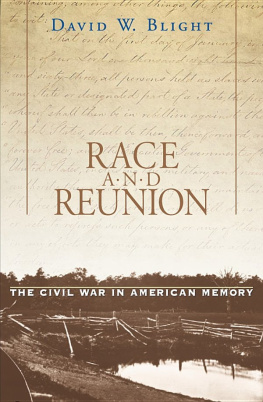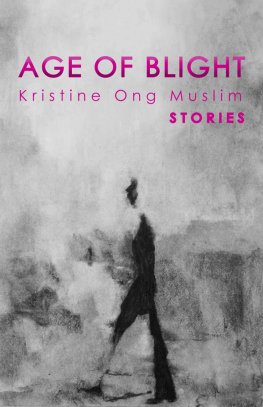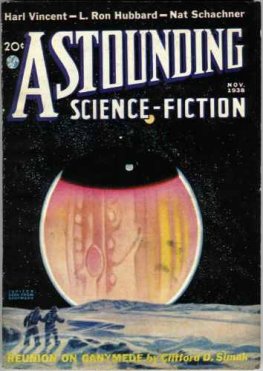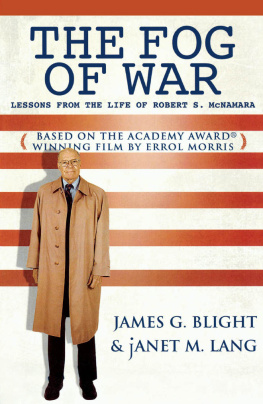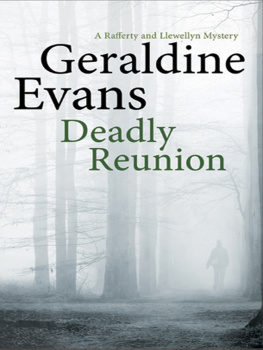Blight - Race and Reunion
Here you can read online Blight - Race and Reunion full text of the book (entire story) in english for free. Download pdf and epub, get meaning, cover and reviews about this ebook. City: Cambridge;MA;United States, year: 2000, publisher: Harvard University Press, genre: Politics. Description of the work, (preface) as well as reviews are available. Best literature library LitArk.com created for fans of good reading and offers a wide selection of genres:
Romance novel
Science fiction
Adventure
Detective
Science
History
Home and family
Prose
Art
Politics
Computer
Non-fiction
Religion
Business
Children
Humor
Choose a favorite category and find really read worthwhile books. Enjoy immersion in the world of imagination, feel the emotions of the characters or learn something new for yourself, make an fascinating discovery.
Race and Reunion: summary, description and annotation
We offer to read an annotation, description, summary or preface (depends on what the author of the book "Race and Reunion" wrote himself). If you haven't found the necessary information about the book — write in the comments, we will try to find it.
Race and Reunion — read online for free the complete book (whole text) full work
Below is the text of the book, divided by pages. System saving the place of the last page read, allows you to conveniently read the book "Race and Reunion" online for free, without having to search again every time where you left off. Put a bookmark, and you can go to the page where you finished reading at any time.
Font size:
Interval:
Bookmark:
RACE AND REUNION
RACE
AND
REUNION
THE CIVIL WAR IN
AMERICAN MEMORY
DAVID W. BLIGHT
The BELKNAP PRESS of
HARVARD UNIVERSITY PRESS
Cambridge, Massachusetts, and London, England
Copyright 2001 by the President and Fellows of Harvard College
ALL RIGHTS RESERVED
Printed in the United States of America
Library of Congress Cataloging-in-Publication Data
Blight, David W.
Race and reunion: the Civil War in American memory / David W. Blight.
p. cm.
Includes bibliographical references (p. ) and index.
ISBN 0-674-00332-2 (cloth)
ISBN 0-674-00819-7 (pbk.)
1. United StatesHistoryCivil War, 18611865Influence. 2. United StatesHistoryCivil War, 18611865Social aspects. 3. United StatesHistoryCivil War, 18611865Afro-Americans. 4. ReconstructionSocial aspects. 5. War and societyUnited StatesHistory. 6. MemorySocial aspectsUnited StatesHistory. 7. ReconciliationSocial aspectsUnited StatesHistory. 8. United StatesRace relations.
I. Title.
E468.9 .B58 2001
973.7dc21 00-042918
For Karin
The People made their recollection fit in with their sufferings.
THUCYDIDES, History of the Peloponnesian War
History... does not refer merely to the past... history is literally present in all that we do.
JAMES BALDWIN, Unnameable Objects, Unspeakable Crimes, 1965
THE CIVIL WAR is our felt historyhistory lived in the national imagination, wrote Robert Penn Warren in his Legacy of the Civil War (1961). Somewhere in their bones, he declared, most Americans have a storehouse of
This book is a history of how Americans remembered their most divisive and tragic experience during the fifty-year period after the Civil War. It probes the interrelationship between the two broad themes of race and reunion in American culture and society from the turning point in the war (1863) to the culmination of its semicentennial in 1915. This is necessarily, therefore, a synthetic and selective work on a vast topic. I am primarily concerned with the ways that contending memories clashed or intermingled in public memory, and not in a developing professional historiography of the Civil War. All historians make research decisions and impose categories on the infinity of evidence and on the enormous variety of human stories embedded in their subjects. This book is no exception: Reconstruction politics, reunion literature, soldiers memory, the reminiscence industry, African American memory, the origins and uses of Memorial Day, and the Southern Lost Cause receive considerable attention in this work, while other important forms and voices of memory do not, such as monument-building, late-nineteenth-century presidential politics, business enterprise, or the gendered character of Americas romance with reunion. I have ignored none of these themes, but in every chapter have kept my eye on race as the central problem in how Americans made choices to remember and forget their Civil War. Throughout, I tell the stories of Civil War memory with the divergent voices of North and South, black and white, joined in the same narrative. And in every chapter I have tried to tell stories by using the power and variety of American voices: presidents and generals, men and women, former foot soldiers and ex-slaves, master novelists and essayists as well as the thousands who crafted ordinary reminiscences, romantics and realists, the victors and the vanquished.
Three overall visions of Civil War memory collided and combined over time: one, the reconciliationist vision, which took root in the process of dealing with the dead from so many battlefields, prisons, and hospitals and developed in many ways earlier than the history of Reconstruction has allowed us to believe; two, the white supremacist vision, which took many forms early, including terror and violence, locked arms with reconciliationists of many kinds, and by the turn of the century delivered the country a segregated memory of its Civil War on Southern terms; and three, the emancipationist vision, embodied in African Americans complex remembrance of their own freedom, in the politics of radical Reconstruction, and in conceptions of the war as the reinvention of the republic and the liberation of blacks to citizenship and Constitutional equality. In the end this is a story of how the forces of reconciliation overwhelmed the emancipationist vision in the national culture, how the inexorable drive for reunion both used and trumped race. But the story does not merely dead-end in the bleakness of the age of segregation; so much of the emancipationist vision persisted in American culture during the early twentieth century, upheld by blacks and a fledgling neo-abolitionist tradition, that it never died a permanent death on the landscape of Civil War memory. That persistence made the revival of the emancipationist memory of the war and the transformation of American society possible in the last third of the twentieth century.
Americans faced an overwhelming task after the Civil War and emancipation: how to understand the tangled relationship between two profound ideashealing and justice. On reunion after so horrible a civil war was a political triumph by the late nineteenth century, but it could not have been achieved without the resubjugation of many of those people whom the war had freed from centuries of bondage. This is the tragedy lingering on the margins and infesting the heart of American history from Appomattox to World War I.
For many whites, especially veterans and their Americans have had to work through the meaning of their Civil War in its rightful placein the politics of memory. And as long as we have a politics of race in America, we will have a politics of Civil War memory.
In many ways, this is a story of how in American culture romance triumphed over reality, sentimental remembrance won over ideological memory. For Americans broadly, the Civil War has been a defining event upon which we have often imposed unity and continuity; as a culture, we have often preferred its music and pathos to its enduring challenges, the theme of reconciled conflict to resurgent, unresolved legacies. The greatest enthusiasts for Civil War history and memory often displace complicated consequences by endlessly focusing on the contest itself. We sometimes lift ourselves out of historical time, above the details, and render the war safe in a kind of national Passover offering as we view a photograph of the Blue and Gray veterans shaking hands across the stone walls at Gettysburg. Deeply embedded in an American mythology of mission, and serving as a mother lode of nostalgia for antimodernists and military history buffs, the Civil War remains very difficult to shuck from its shell of sentimentalism. Over time, Americans have needed deflections from the deeper meanings of the Civil War. It haunts us still; we feel it, to borrow from Warren, but often do not face it.
In the half century after the war, as the sections reconciled, by and large, the races divided. The intersectional wedding that became such a staple of mainstream popular culture, especially in the plantation school of literature, had no interracial counterpart in the popular imagination. Quite the opposite: race was so deeply at the root of the wars causes and consequences, and so powerful a source of division in American social psychology, that it served as the antithesis of a culture of reconciliation. The memory of slavery, emancipation, and the Fourteenth and Fifteenth Amendments never fit well into a developing narrative in which the Old and New South were romanticized and welcomed back to a new nationalism, and in which devotion alone made everyone right, and no one truly wrong, in the remembered Civil War. Persistent discussion of the race problem across the political and ideological spectrum throughout the late nineteenth century meant that American society could not easily remember its Civil War problem or a Blue-Gray problem.
Next pageFont size:
Interval:
Bookmark:
Similar books «Race and Reunion»
Look at similar books to Race and Reunion. We have selected literature similar in name and meaning in the hope of providing readers with more options to find new, interesting, not yet read works.
Discussion, reviews of the book Race and Reunion and just readers' own opinions. Leave your comments, write what you think about the work, its meaning or the main characters. Specify what exactly you liked and what you didn't like, and why you think so.

